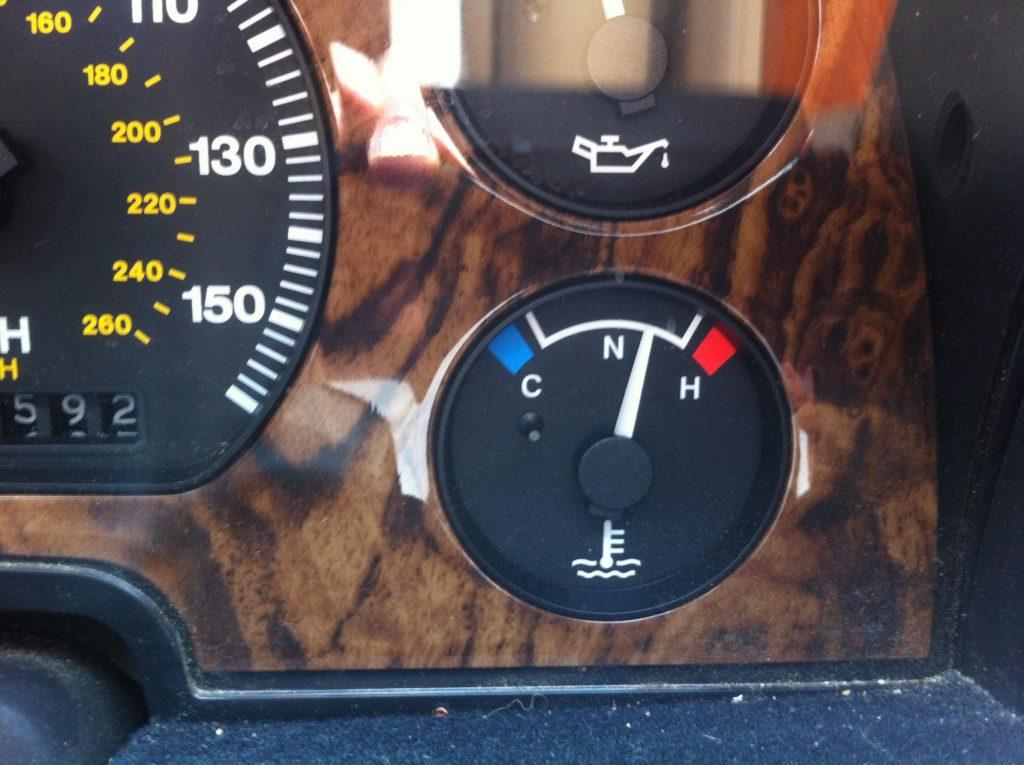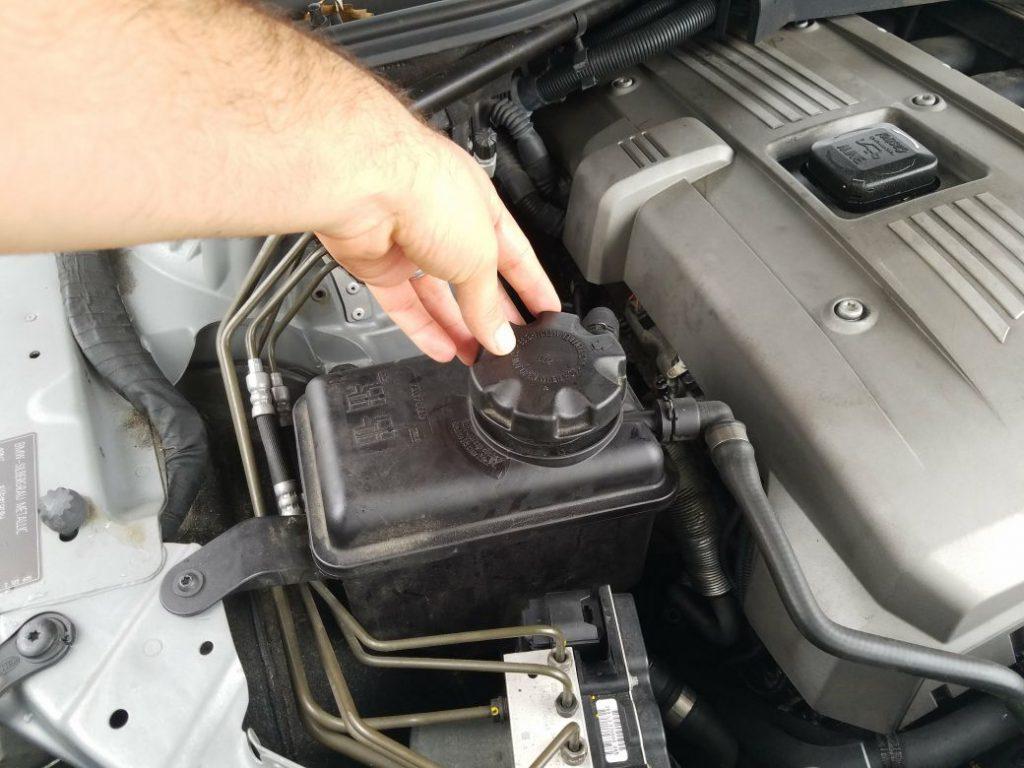The coolant system in your car normalizes the increasing temperature of the engine. It is helpful to minimize the fuel economy, the lifespan of the component, and power consumption.
But what if the coolant in the cooling system fails to perform its intended task? There can be any moment when you can face low coolant in car. It’s better to find out the warning signs so that you can handle the situation easily.
So let’s discover the warning signs of low coolant in the car right now.
Contents
What Are The Symptoms Of Low Coolant In Car?
Engine coolant is a solution consisting of water and antifreeze in the radiator of an automobile. This solution works to prevent the car engine from overheating when the temperature rises and to prevent freezing when the weather is too cold.
To drive safely and avoid sudden breakdowns of the engine, it’s better to diagnose the fault in the car’s cooling system. How do I know if my car needs coolant? So with waiting anymore, let’s get to know about some useful warning signs of the low coolant system.
Higher or lower temperature gauze
The normal temperature system results in the needle being at the “Normal” range of the temperature gauze. Movement of the needle upwards or downwards is the indication of some fault or error in the coolant.
Generally, blocked leaves of the coolant radiator are the reason for the abnormal behavior of the needle. So keep an eye on the temperature gauze meter while driving. This way you will be able to cope with low coolant in car.

Read more:
Unresponsive heater
Any glitch in the coolant can affect the heater as the coolant passes through its core via valves. So if there is a leakage or even the blockage of the coolant in the engine, it can lead the heater to not respond.
Leakage in the coolant
The coolant can leak internally or externally from the engine. When you are driving back to the home, check the road for a green, orange, or pink leakage. It is an indication of antifreeze leakage. Take your car to the nearest workshop to find a better solution to this issue or simply use the useful maintenance tips for a DIY hack.
Note: The leaked fluid is toxic. Clean it from the floor so that your pet and kids remain safe.
Mild smell
Yes, you read it right. A sweet smell can be an indication of faulty coolant. The leakage of antifreeze can also be diagnosed by a sweet smell. Investigate the steam under the hood or unexpected film inside the windshield, as these are the areas from where coolant might leak.
Light of the coolant
The engine temperature is indicated by the thermometer placed near the dashboard under a box. The wavy lights become more active than normal, and the temperature of the engine is higher. To find its cause, consult the experts near your place and resolve it quickly.

How To Check The Coolant Level In Your Car?
To check the car coolant level, drivers need to check the coolant reservoir. The tank with min/max markings is the minimum and maximum coolant level. The process of checking the car coolant needs to follow these 4 steps:
- Step 1: Turn off the engine, open the hood, and wait for the engine to cool completely.
- Step 2: Gently twist the cooling tank cap counterclockwise to release excess pressure and open the cap.
- Step 3: If the coolant level is found between the Min and Max lines, it means that your car still has enough cooling fluid.
- Step 4: If the engine coolant level is below the Min line, it is necessary to add more coolant to make the car operate stably.
During this process, drivers should not open the coolant cap when the engine is hot, because then the liquid exits at a high temperature, increasing the risk of burns. Not all coolant products are suitable for vehicles. In particular, only suitable additives should be used for each type of vehicle to limit damage to the engine. Owners need to be careful in the process of changing the coolant because additives in the coolant are potentially harmful to health.
How to check the coolant level, let’s watch this video:
How Long Can I Drive With Low Coolant?
Every time you drive your car, you should remember that the coolant is one of the factors in the power of your car. So when the coolant is low, it means that it’s not safe to drive the car, and it could be very dangerous for the car.
Driving with low coolant is not a good habit and you should avoid it as soon as possible. With this question, our answer is we don’t recommend drivers drive with a low coolant for an extended period of time.
If you detect that the car coolant level is low, it’s important to address the issue ASAP. Ideally, you should add more coolant to the system or have your vehicle serviced by a qualified mechanic before driving anywhere.
However, if you must drive with low coolant, you should limit your driving as much as possible and keep a close eye on the engine temperature gauge. If the engine begins to overheat, pull over to a safe location immediately and turn off the engine to allow it to cool down.
In general, it’s best to avoid driving with low coolant altogether, as it can cause significant and expensive damage to your vehicle.
If you notice that your coolant level is consistently low, it’s important to have your vehicle inspected by a qualified mechanic to identify and fix any leaks or other issues that may be causing the problem.
Conclusion
So this is how you can handle the low coolant in car. Whether you are driving to your office or going on a road trip, remember these warning signs and drive safely.




Pls how can you reprogram x-Japan vehicle steolanguage to English?
Dear Mr. Tsukasa Azuma,
I have a Nissan Terrano Petrol Propelled VG33 Engine. I am experiencing problems with fuel gauge, that rises to full tank or three quarter tank even when I have just put in a quarter tank of fuel, afterwards it drops to where it is supposed to be. What could be causing this?
Lately, am also having a problem with the odometer reading. When I switch the Engine, it will not come on/show that mileage. It will be blank , but after driving or whilst driving, it would come on but the reading would be behind. When I park, and later on start the car, it would show the latest mileage by updating or adding up to the correct mileage covered. This is the routine am facing. It is on and off. When it switches whilst driving, you expect to see a movement for every distance/km covered, but it will just be static without movement until after sometime when it would move to what could be the correct reading? What is the cause? It it electrical or mechanical? What can i do ?
What is the code p0171 mean for my mazda premacy 2013
My car shake hard when I start it sometimes it even shut off I of to restart it